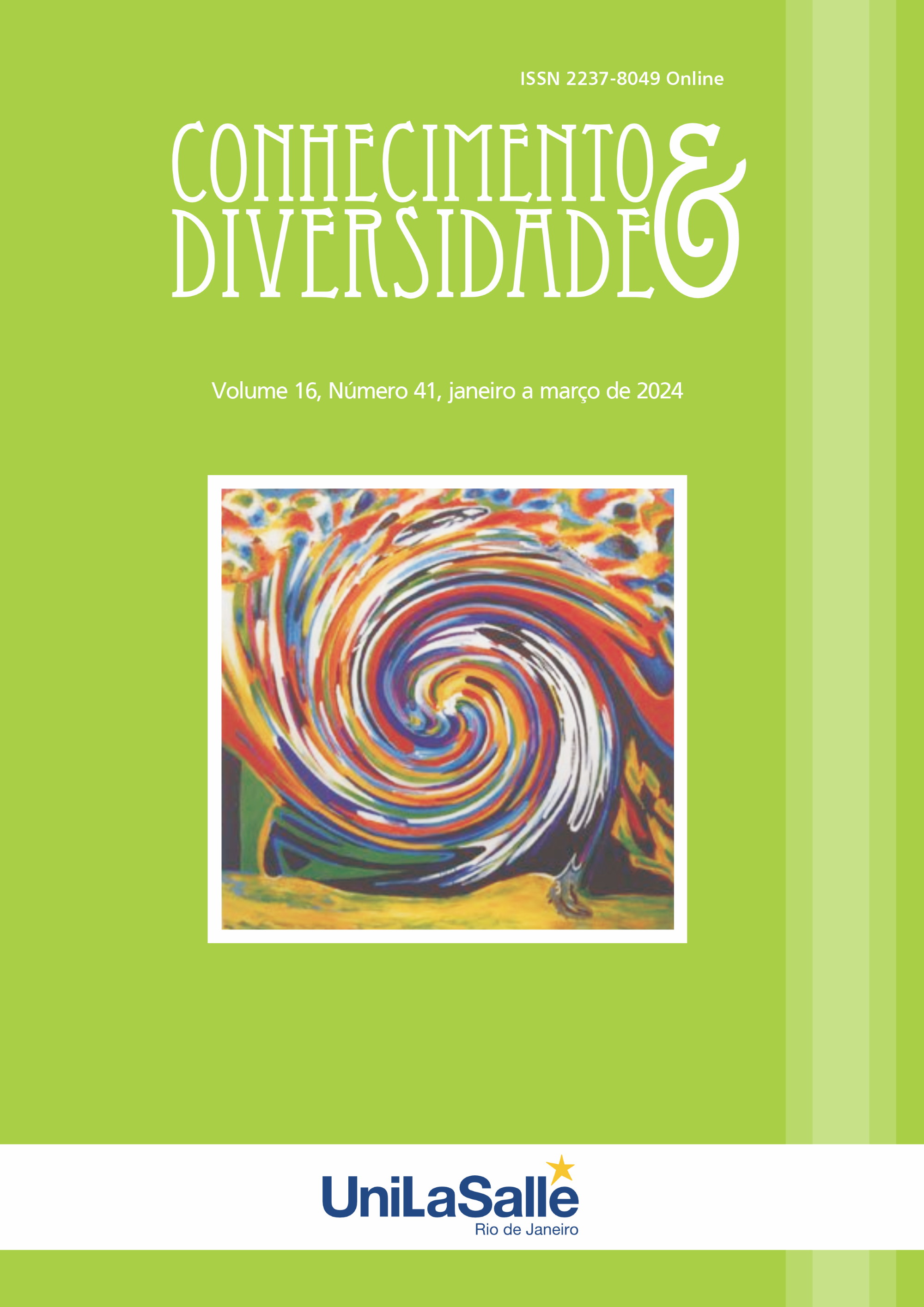THE MODEL OF INCLUSIVE EDUCATION OF PRESCHOOLERS AS A BASIS FOR EDUCATIONAL BARRIER-FREE EDUCATION
DOI:
https://doi.org/10.18316/rcd.v16i41.11543Palabras clave:
Inclusive education, Educational environment, Modern education, Preschool educationResumen
The modern educational paradigm recognises inclusive preschool education as an important aspect that requires attention. The relevance lies in rethinking the attitude of society and the state towards children with special educational needs, taking into account changes in pedagogical theory and practice. The article is aimed at highlighting the key aspects of inclusive preschool education, as well as analysing changes in the modern pedagogical paradigm aimed at improving conditions for children with special educational needs. The article analyses the essence of inclusive education, identifying key aspects such as an individual approach to children and creating conditions for their equal participation in joint groups. This was made possible by using the method of documentary research and analysis of the current regulatory framework. The authors emphasise the importance of inclusive preschool education as a key step towards creating a more inclusive and equal society. The article highlights that inclusive education provides an opportunity for children with special educational needs to become equal members of society, reducing the risks of isolation and segregation. The authors examine other aspects of inclusive preschool education, such as the professional training of teachers and specialists, the organisation of developmental environments for children with different needs, and the importance of partnerships with families. The article emphasises that inclusive preschool education is a key step towards creating a more inclusive and equal society.
Citas
Akpan, V. I., Igwe, U. A., Mpamah, I. B. I., & Okoro, C. O. (2020). Social constructivism: Implications on teaching and learning. British Journal of Education, 8(8), 49–56. https://www.eajournals.org/wp-content/uploads/Social-Constructivism.pdf
Alila, K., Ukkonen-Mikkola, T., & Kangas, J. (2022). Elements of the pedagogical process in Finnish early childhood education. In H. Harju-Luukkainen, J. Kangas, & S. Garvis (Eds.), Finnish early childhood education and care: A multi-theoretical perspective on research and practice (Vol 1, pp. 195–208). Springer. https://doi.org/10.1007/978-3-030-95512-0_14
Duckworth, A. L., Kautz, T., Defnet, A., Satlof-Bedrick, E., Talamas, S., Lira, B., & Steinberg, L. (2021). Students Attending School Remotely Suffer Socially, Emotionally, and Academically. Educational Researcher, 50(7), 479–482. https://doi.org/10.3102/0013189X211031551
Gvozdikova, T., & Amandykova, D. (2023). Promoting inclusive education in Kazakhstan: Environmental and architectural aspects. ISVS e-Journal, 10(4), 201–210.
Hannigan, S., Grima-Farrell, C., & Wardman, N. (2019). Drawing on creative arts therapy approaches to enhance inclusive school cultures and student wellbeing. Issues in Educational Research, 29(3), 756–773. http://www.iier.org.au/iier29/hannigan.pdf
Hasiuk, I., Medynskyi, S., Saienko, V., Biriukova, T., Ivanikiv, N., & Yakovliv, V. (2022). Correlation of physical indices with the subjective physiological and neurophysiological parameters of health. Revista Românească pentru Educaţie Multidimensională, 14(4), 159–179. https://doi.org/10.18662/rrem/14.4/635
Humeniuk, T., & Romaniuk, P. (2023). On the development of information and communication technologies in education of the future: the possibilities of cloud computing technology. Futurity Education, 3(1), 32–41. https://doi.org/10.57125/FED.2023.25.03.03
Immordino-Yang, M. H., Darling-Hammond, L., & Krone, C. R. (2019). Nurturing nature: How brain development is inherently social and emotional, and what this means for education. Educational Psychologist, 54(3), 185–204. https://doi.org/10.1080/00461520.2019.1633924
Iskakova, M., Kaldygozova, S., Ussenova, A., Junissova, A., & Shomanbaeva, A. (2023). Towards holistic education: Synthesizing personality consciousness, emerging technologies, and philosophical considerations in education system evolution. Futurity Philosophy, 2(2), 17–29. https://doi.org/10.57125/FP.2023.06.30.02
Keleş, Ö., Uzun, N., & Yalçin, G. (2023). Barrier-free science education for visually impaired students: An activity for life cycle in plants. Science Insights Education Frontiers, 14(1), 1945–1964. https://doi.org/10.15354/sief.23.or082
Kozlova, T., Polyezhayev, Y. (2022). A Cognitive-pragmatic study of Australian English phraseology. AD ALTA: Journal of Interdisciplinary Research, 12(1), 85–93. https://doi.org/10.33543/12018593
Krymets, L. (2022). What must the education of the future be like to be really future? (Attempts of philosophical reflection). Futurity Philosophy, 1(4), 28–41. https://doi.org/10.57125/FP.2022.12.30.03
Lebona, M. (2023). Exploring the understanding of enabling environment for learners with special educational needs in rural primary schools in Lesotho. International Journal of Studies in Psychology, 3(1), 22–27.
Marie, T., & Bailey, S. (2023). Creating an inclusive community in your school through Barrier-Free Theatre. Arts Education Policy Review, 124(4), 251–258. https://doi.org/10.1080/10632913.2022.2070888
Resvani, E., Eleftherakis, T., Kalerante, E., & Kaspiri, A. (2020). Integration, social inclusion, inclusive education: Parallel support teachers’ viewpoints. International Journal of Education Humanities and Social Science, 3(6), 89–124. https://ijehss.com/uploads2020/EHS_3_201.pdf
Ridei, N. (2021). Analysis of professional competencies in the characteristics of the teacher of the future: global challenges of our time. Futurity Education, 1(1), 22–32. https://doi.org/10.57125/FED.2022.10.11.3
Sanetra, B., & Małodobry, Z. (2022). Toward a postclassical paradigm for the education of the future. Futurity Education, 2(1), 13–19. https://doi.org/10.57125/FED/2022.10.11.20
Tsekhmister, Y. (2021). The problem of pedagogical innovations and trends in the development of the educational environment. Futurity Education, 1(2), 22–30. https://doi.org/10.57125/FED/2022.10.11.16
Türkmen, H. (2023). A comparative analysis of Karplus Learning Cycle Model and Ausubel Meaningful Learning Model on children’s environmental pollution cognition. Futurity Education, 3(3), 106–129. https://doi.org/10.57125/FED.2023.09.25.06
Tytova, N., & Mereniuk, K. (2022). Digital literacy of future teachers in the realities of large-scale military aggression (Ukrainian experience). Futurity Education, 2(3), 43–54. https://doi.org/10.57125/FED/2022.10.11.33
UNESCO. (2020). Inclusion and education: All means all. https://unesdoc.unesco.org/ark:/48223/pf0000373718/PDF/373718eng.pdf.multi
UNESCO. (2021). Inclusion and education: All means all. https://unesdoc.unesco.org/ark:/48223/pf0000375490/PDF/375490eng.pdf.multi
United Nations. (1989). Convention on the rights of the child [Ratified by the resolution of Verkhovna Rada of Ukraine No. 789-XII]. https://zakon.rada.gov.ua/laws/show/995_021#Text
Wiedebusch, S., Maykus, S., Gausmann, N., & Franek, M. (2022). Interprofessional collaboration and school support in inclusive primary schools in Germany. European Journal of Special Needs Education, 37(1), 118–130. https://doi.org/10.1080/08856257.2020.1853971
Descargas
Publicado
Número
Sección
Licencia
Derechos de autor 2024 Oksana Stanichenko, Svitlana Makarenko, Olena Maksymova, Mariia Fedorova, Tetiana Huzhanova

Esta obra está bajo una licencia internacional Creative Commons Atribución 4.0.
Tal como recomienda el Public Knowledge Project, RCD adopta para sus artículos una licencia CREATIVE COMMONS: Attribution CC BY 4.0
Esta licencia permite que otros distribuyan, remezclen, adapten y desarrollen su obra, incluso con fines comerciales, siempre que le atribuyan a usted el mérito de la creación original.
Esta es la licencia más adecuada que se ofrece.
Recomendado para la máxima difusión y utilización de los materiales bajo licencia.



